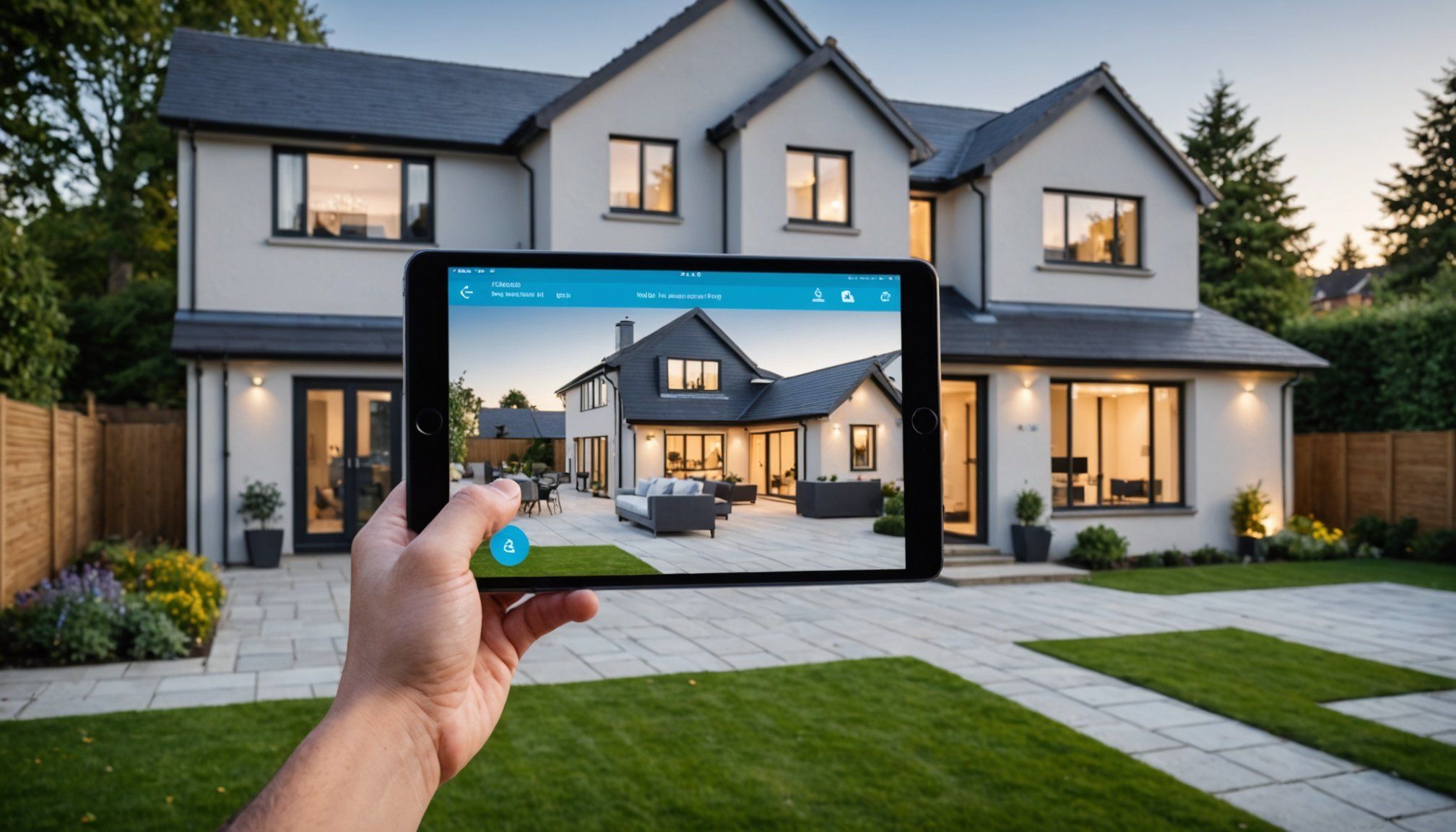Overview of Smart Home Innovations in Property Management
Smart home innovations are transforming the UK property management sector by integrating cutting-edge technology to enhance building efficiency and tenant experiences. These advancements encompass a variety of systems, including automated lighting, thermostats, and security solutions. The seamless integration of these technologies not only optimises property management but also offers a strategic advantage in a competitive market.
Recent statistics indicate a significant increase in the adoption of smart home innovations within the UK. By 2023, it is projected that over 72% of new housing developments feature some form of smart technology, emphasising the growing trend towards intelligent living spaces. This adoption is driven by the potential to increase property value, improve tenant satisfaction, and enhance energy efficiency.
Sujet a lire : Mastering Property Depreciation: Proven Strategies for Successful UK Real Estate Investment Management
Key players shaping this evolving market include well-known technology companies such as Google Nest and Amazon, which offer comprehensive systems that manage various aspects of a home. Emerging companies are also contributing to the landscape with innovative solutions tailored to specific needs within property management.
By understanding the scope and impact of smart home innovations, property managers can better position their assets in the marketplace, ensuring they meet the expectations of modern tenants while capitalising on the operational efficiencies these technologies provide.
Dans le meme genre : Essential Legal Guidelines for Transforming UK Commercial Properties into Mixed-Use Developments
Case Studies of Successful Smart Home Implementations
Implementing smart home innovations in various settings provides valuable insights into their real-world applications and benefits. Let’s dive into some leading case studies in the UK property management landscape.
Residential Property Management
In the residential sector, properties equipped with smart technology have demonstrated remarkable benefits, including enhanced tenant satisfaction and reduced utility costs. Successful implementations showcase how smart lighting, security systems, and energy management solutions have transformed living spaces. For instance, an apartment complex in London adopted integrated smart thermostats and lighting, resulting in a 20% reduction in energy bills and increased tenant retention due to the added convenience and control.
Commercial Property Management
Commercial buildings have also embraced these innovations to boost operational efficiency. A notable example is a smart office building in Manchester that implemented a comprehensive automation system. By incorporating systems like smart HVAC controllers and access management, they achieved a substantial decrease in energy consumption and enhanced security measures, which appealed to potential tenants, thus increasing occupancy rates.
Mixed-Use Developments
Mixed-use developments face unique challenges but have benefited from tailored smart solutions. A noteworthy project is a development in Birmingham where smart building platforms were integrated to manage both residential and retail spaces, efficiently addressing varied management needs. These solutions ensured seamless operations across different environments, highlighting the adaptability of smart home technologies to diverse property types.
Potential Benefits of Smart Home Technologies
Incorporating smart home technologies into property management brings a multitude of advantages, primarily through improving tenant satisfaction and retention. These technologies offer features like customised climate control and automated lighting—both contributing to comfort and convenience. When tenants experience these benefits, they are more likely to renew leases, fostering long-term occupancy and stability.
Another significant advantage is the operational efficiency and cost savings these technologies provide property managers. By using intelligent heating, ventilation, and air conditioning (HVAC) systems, managers can reduce energy consumption, achieving not only lower utility bills but also enhancing facility management processes. This efficiency translates into fewer maintenance issues, ultimately optimising resource allocation.
From an environmental perspective, the role of smart technologies in enhancing sustainability cannot be overstated. For instance, smart energy solutions ensure that homes use only the power necessary, reducing the overall carbon footprint of the building. Such technologies can assist in achieving compliance with ever-evolving environmental regulations, positioning properties as forward-thinking and eco-friendly.
The integration of smart home systems into property management not only increases tenant appeal but also boosts operational and environmental efficiencies, marking a significant step forward in modern property management practices.
Comparison of Leading Smart Home Technologies
In the rapidly evolving landscape of smart home technology, understanding different offerings is crucial. While these technologies enhance everyday living, it’s essential to consider their key features, functionalities, and market trends.
Security Systems
Smart security systems have transformed property safety measures. These systems often include features like real-time surveillance, remote access, and motion detection. Such advancements enable property managers to ensure the safety of tenants with minimal effort. However, the initial investment can be steep, though reduced insurance premiums often offset this cost. Trends indicate a growing demand for AI-powered features that enhance threat detection efficiency.
Energy Management Systems
Energy management systems are integral to smart homes, focusing on sustainability and efficiency. They offer automated control over energy consumption, contributing to cost savings and environmental conservation. Despite their benefits, integration can be complex. As energy prices rise, market trends lean towards systems capable of real-time data analytics to optimise energy usage further.
Automation Solutions
Automation systems simplify daily tasks through interconnected devices, providing enhanced convenience. These solutions often include voice assistants and programmable settings for lighting and temperature. While they offer notable convenience, privacy concerns over data handling remain a topic of debate. The market trend favours increased interoperability and user-friendly interfaces, fostering broader adoption.
Expert Insights and Future Forecasts
The UK real estate market is poised for continued evolution, with industry experts predicting significant advancements in smart home innovations over the next 5–10 years. A pivotal factor in this transformation is the maturation of Internet of Things (IoT) technologies, which promise even greater connectivity and integration within homes. Experts anticipate these developments will not only enhance efficiency in managing properties but also elevate tenant experiences through more personalised and intuitive environments.
Emerging technologies such as AI-enhanced systems are particularly noteworthy. The integration of machine learning and AI into smart homes is expected to revolutionise predictive maintenance and personalised automation, offering unprecedented levels of convenience and efficiency for both property managers and tenants. This aligns with forecasts of smarter environments capable of learning from user behaviours to optimise energy use and improve comfort.
Potential regulatory changes are also expected to impact the adoption of smart technologies in the UK. As environmental concerns become more critical, regulations may incentivise or require the use of energy-efficient systems in both residential and commercial properties. This could drive market shifts towards more sustainable models, shaping the future role of smart home technologies in property management.











